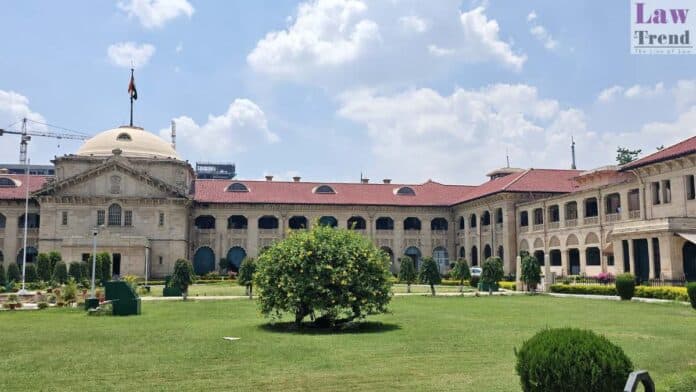The Allahabad High Court has issued strong directions to clear encroachments on public and utility lands across Uttar Pradesh within 90 days, warning that failure to act will invite both departmental and criminal proceedings against responsible officials.
Justice P.K. Giri passed the order on October 6 while hearing a Public Interest Litigation (PIL) filed by Manoj Kumar Singh, who complained that a village pond in Chauka, Chunar (Mirzapur), had been encroached upon by local residents, and no steps were taken by authorities despite formal complaints.
The court held that no encroachment is permissible on water reservoirs and instructed that such encroachments must be removed “as early as possible with heavy penalty, cost and punishment.” Emphasising the ecological importance of water bodies, the order stated:
“JAL HI JIVAN HAI i.e. ‘Water is life’, thus without water there is no existence of life of any creature on earth so it must be saved at any cost.”
The bench directed the state authorities to ensure removal of all illegal occupations on public land or land reserved for public purposes within 90 days.
Justice Giri made it clear that inaction by pradhans, lekhpals, revenue officers, or members of the Land Management Committee in reporting or removing encroachments would amount to criminal breach of trust under Section 316 of the Bharatiya Nyay Sanhita (BNS), 2023, along with charges of abetment and conspiracy.
The judgment described gram sabha land as “entrusted property,” adding that its encroachment constitutes a “dishonest misuse of public trust.”
Accordingly, the court directed that criminal proceedings be initiated under the BNS against officials found guilty of inaction.
The court directed police authorities to extend full cooperation in clearing encroachments and instructed that any person who reports illegal occupation should be heard at every stage of the proceedings.
It also cautioned that if the encroachments are not removed within the stipulated period, or if officials fail to implement the order, civil contempt proceedings may be initiated in the High Court against the defaulting officers.




